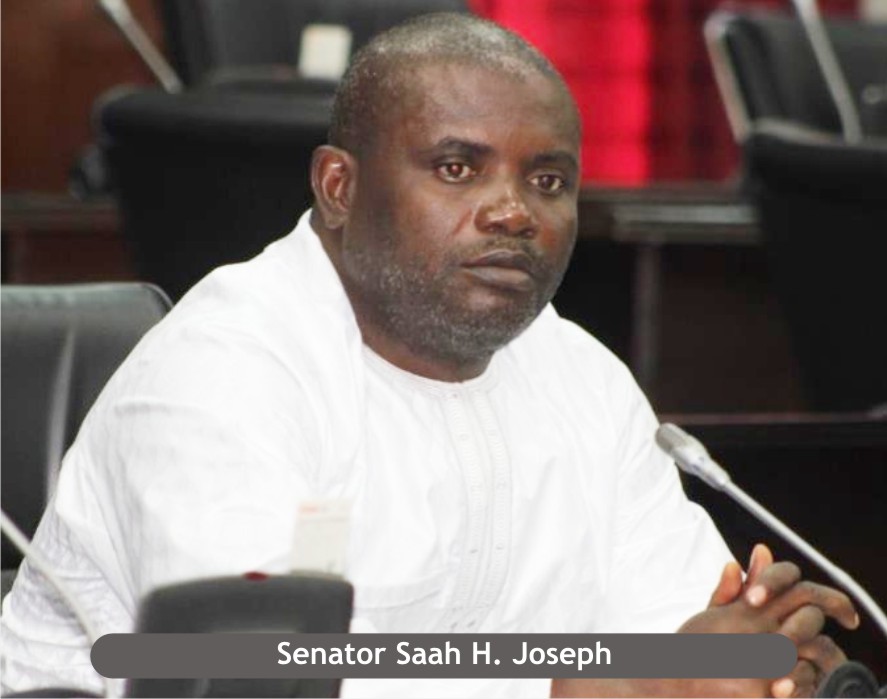The political landscape of Liberia has long been characterized by shifting alliances, internal disputes, and public confrontations, often erupting when power dynamics change. This volatile environment is exemplified by the recent accusations and counter-accusations between Senator Saah Joseph and former Representative Moses A. Gray, both once prominent members of the Coalition for Democratic Change (CDC). Senator Joseph, a key figure in Montserrado County, has publicly aired grievances against former President George Weah and other CDC officials, alleging a pattern of marginalization and even an attempt on his life. This public airing of internal party conflicts illuminates the often-fragile nature of political loyalty in Liberia.
Central to Senator Joseph’s claims is the allegation that former President Weah deliberately ignored him for four years, despite Joseph’s influential position as Chair of the Executive in the Liberian Senate. This alleged ostracization, according to Joseph, left him vulnerable but resolute in his commitment to serving his constituents. Furthermore, Joseph claims that high-ranking CDC officials orchestrated an arson attack on his home while his family was inside, motivated by his unexpectedly high vote count in Montserrado County, which surpassed even President Weah’s. Joseph maintains that this electoral success was not a deliberate attempt to overshadow the President, but rather a reflection of his dedicated campaigning and the will of the people. This incident highlights the potential for internal rivalries within political parties, where electoral success can be perceived as a threat rather than an accomplishment.
Senator Joseph’s public pronouncements paint a picture of a party rife with internal power struggles and a culture of suspicion. He suggests that his electoral performance, rather than being celebrated, was viewed with suspicion and ultimately led to an attempt on his life. These allegations raise serious questions about the internal dynamics of the CDC and the potential for violence within the party. The perceived threat posed by Joseph’s popularity in Montserrado County underscores the complex interplay between personal ambition, party loyalty, and the pursuit of power within Liberia’s political system.
The accusations against Senator Joseph by former Representative Moses A. Gray further complicate the narrative. Gray has publicly labeled Joseph a traitor, spy, and political opportunist, asserting that it was President Weah who elevated Joseph to political prominence. This exchange of accusations has transformed a private dispute into a public spectacle, fueling speculation and raising questions about the integrity and stability of the CDC. Gray’s characterization of Joseph as an ungrateful individual dependent on Weah for his political rise contrasts sharply with Joseph’s own narrative of independent success and community service prior to joining the CDC.
In response to Gray’s accusations, Senator Joseph has offered his own account of events, alleging that Gray orchestrated his repeated removal from internal CDC communication channels, accusing him of being a spy for the opposition Unity Party. These accusations and counter-accusations reveal the precarious nature of political alliances and the constant undercurrent of suspicion that can permeate political relationships. Joseph’s recounting of being excluded and reinstated multiple times from the party’s internal communications underscores the volatile and unpredictable nature of intra-party dynamics. He also disputes Gray’s claim that he owes his political success to President Weah, citing his work with the Jefferson Baptist Mission and the establishment of several schools in Liberia prior to joining the CDC.
This public feud between Senator Joseph and former Representative Gray provides a glimpse into the often-turbulent world of Liberian politics, where shifting loyalties, personal ambitions, and accusations of betrayal are commonplace. The allegations of arson, political maneuvering, and espionage highlight the high stakes involved in the pursuit and maintenance of power. Senator Joseph’s promise to address the press upon his return from the United States suggests that this saga is far from over and that further revelations may yet emerge, potentially shedding more light on the internal workings of the CDC and the broader political landscape of Liberia. This unfolding drama underscores the challenges of building and maintaining stable political institutions in a context marked by deep-seated mistrust and intense competition for power.














